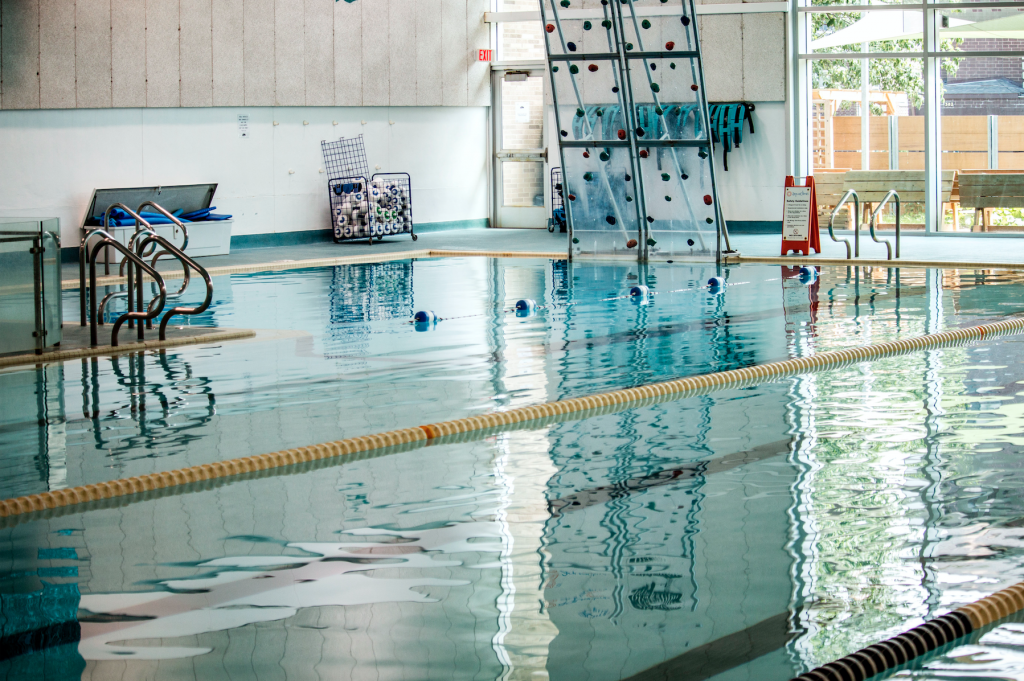The idea that every child deserves to learn to how to swim has inspired the Iowa City Parks & Recreation Department to address barriers between local kids and city pools.
“We’re still kind of in the infancy of how we’re going to do this, but basically, our goal is to get as many kids into the basic level swimming lessons as we possibly can,” Parks & Recreation Director Juli Seydell Johnson said.
City aquatics-program supervisor Matthew Eckhardt said the Swimming Lesson Scholarship Program started five years ago in an effort to eliminate financial barriers to swimming. Scholarships pay for introductory level lessons for Iowa City residents ages 18 or younger. Eight lessons typically cost $42.
Eckhardt said the department has raised funds for scholarships with Ping-Pong and golf tournaments, as well as a 24-hour swimming marathon hosted at the private residence of Gary Watts, the CEO of the Watts Group real-estate agency. So far, there have been two such marathons.
“At some point, the ultimate goal is to be able to offer introductory swimming lessons to the community at no cost,” he said. “We’re not there yet, but we’re getting there.”
The second swimming marathon raised slightly more than $16,000. Eckhardt said that amount will sustain the scholarship program through the year. So far, the program has never turned down an applicant, except for nonresidents who do not qualify.
Eckhardt said his department has striven to consider the whole community and has kept lesson rates low to be accessible to more people. Transportation, he said, seems to be a bigger barrier than finances.
Potential solutions, such as creating an extended care program to bridge the gap between school and home, are in discussion, but nothing is certain.
Eckhardt said lack of exposure can create a secondary barrier as well.
“We find that kids who had the least amount of access to a pool or to an aquatic facility can very quickly fall behind,” he said. “Then, we get into a fear element where not only do they not have the skill to swim, but then we have to overcome the fear as well that sort of manifested itself from not having access and exposure.”
RaQuishia Harrington, a program supervisor for special and underserved populations, said culture can also create barriers to swimming. She coordinated an event called “She Swims Too” in May to bring a diverse group of females to the pool.
She said some women cannot swim in public for religious or personal reasons.
“There was no viewing from our usual viewing locations, we covered them all up, and it was only women here,” she said. Only female lifeguards were on duty.
Harrington said the event also considered body positivity. Officials handed out material on health, self-esteem, skin care, and the scholarship program, as well as swimming caps, goggles, and swimming shampoo and conditioner for women of color, funded by the Public Health Department.
She said the event was intergenerational and that women from different age groups attended.
“Generationally, if mom doesn’t know how to swim, mom is less likely to take her kids to the pool to swim,” Harrington said.



